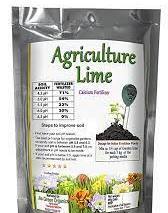At the African Food Systems Conference held on August 6, 2023, in Dar Es Salaam, a key issue affecting Tanzania’s agricultural sector took center stage—its heavy reliance on imported fertilizers. Retired Prime Minister Mizengo Pinda revealed a staggering statistic: over 90% of the fertilizer used in Tanzania is imported, primarily from countries like Russia, while less than 10% is produced domestically. This over-reliance has left the country vulnerable to global supply chain disruptions, particularly due to geopolitical tensions.
The ramifications of this dependency are far-reaching. Import disruptions have caused a spike in fertilizer prices, making it harder for Tanzanian farmers to access affordable inputs. These challenges have led to food security risks, prompting governments across Africa to introduce subsidy programs to cushion the impact on farmers.
Over-Reliance on Chemical Fertilizers
In his address, Pinda also raised concerns about the excessive use of chemical fertilizers. He likened the overuse of fertilizers to overmedicating the human body—arguing that too much can damage soil health. Over time, excessive fertilizer use can lead to soil degradation, reducing its fertility and long-term productivity. Pinda emphasized the need for a balanced approach to soil nutrition, one that considers both the benefits and potential harms of chemical inputs.
Dr. Agness Kalibata, President of AGRA , further emphasized the central role of fertilizers in global food production. She pointed out that fertilizers contribute to half of the world’s food supply, but their limited availability can severely reduce crop outputs. Dr. Kalibata advocated for Africa to boost its domestic fertilizer production to mitigate the risks posed by volatile international markets.
Fertilizer Consumption and Challenges
Despite increased fertilizer consumption in Tanzania, rising from 250,000 tonnes in 2021 to 300,000 tonnes in 2022, the country still lags behind its regional counterparts. According to the Food and Agriculture Organization (FAO), the application rate per hectare in Tanzania remains a mere 15.858 kilograms, well below recommended levels. This contributes to low yields, particularly in areas dependent on rain-fed, traditional farming systems.
For comparison, neighboring Kenya consumed 700,000 tonnes of fertilizer in the same period. While Tanzania has maintained a commendable food sufficiency rate of over 120% in the past five years—thanks to crop diversification and governmental support—the low fertilizer application rate threatens future food security and productivity.
The Role of Agrolime in Soil Health
A promising solution to Tanzania’s fertilizer challenge lies in the integration of agricultural lime (agrolime), a soil amendment made from crushed limestone. Agrolime is critical for correcting soil acidity, a widespread issue that reduces the effectiveness of fertilizers. By neutralizing acidic soils, lime makes vital nutrients like phosphorus more available to plants, leading to healthier soils and higher yields.
Tanzania, blessed with significant limestone deposits, is well-positioned to ramp up agrolime production and reduce its dependence on imported fertilizers. As Dr. Kalibata highlighted, agrolime offers a more sustainable approach by enhancing the efficiency of fertilizers, thereby reducing the need for excessive chemical inputs that degrade soil over time.
Insights from the Field
Field studies- SAGCOT/TARI from regions like Njombe reveal that some soils may benefit more from lime treatment than from additional fertilizer. This underscores the importance of understanding regional soil health issues, as blanket fertilizer use may not be the most effective approach. By promoting soil testing and the targeted use of agrolime, Tanzania can better address specific soil needs, ensuring more effective use of resources and improving yields.
Education and Accessibility: The Road Ahead
For agrolime to become a widely adopted solution, there is a pressing need to educate farmers on its benefits and proper usage. Agricultural extension services must prioritize soil testing to determine the precise needs of each region. Additionally, the SAGCOT Soil Health Partnership and other initiatives are working to expand the lime and gypsum industry in Tanzania. These efforts aim to increase domestic fertilizer production while promoting agrolime as a sustainable alternative.
Addressing logistical challenges is equally important. Farmers, especially those in remote areas, need better access to agrolime at affordable prices. Effective distribution systems and clear education on application techniques are essential for maximizing the potential of lime in Tanzania’s agricultural landscape.
Tanzania’s current reliance on imported fertilizers poses significant risks to its agricultural sector. However, through increased domestic production of agrolime, targeted farmer education, and policy support, the country can reduce its vulnerability and improve soil health sustainably. The ongoing efforts of organizations like SAGCOT and AGRA are paving the way for a more resilient agricultural system, capable of weathering global disruptions and ensuring long-term food securit
With a renewed focus on sustainable soil management, Tanzania is poised to strengthen its agricultural foundation and boost productivity, benefiting both farmers and the economy.
